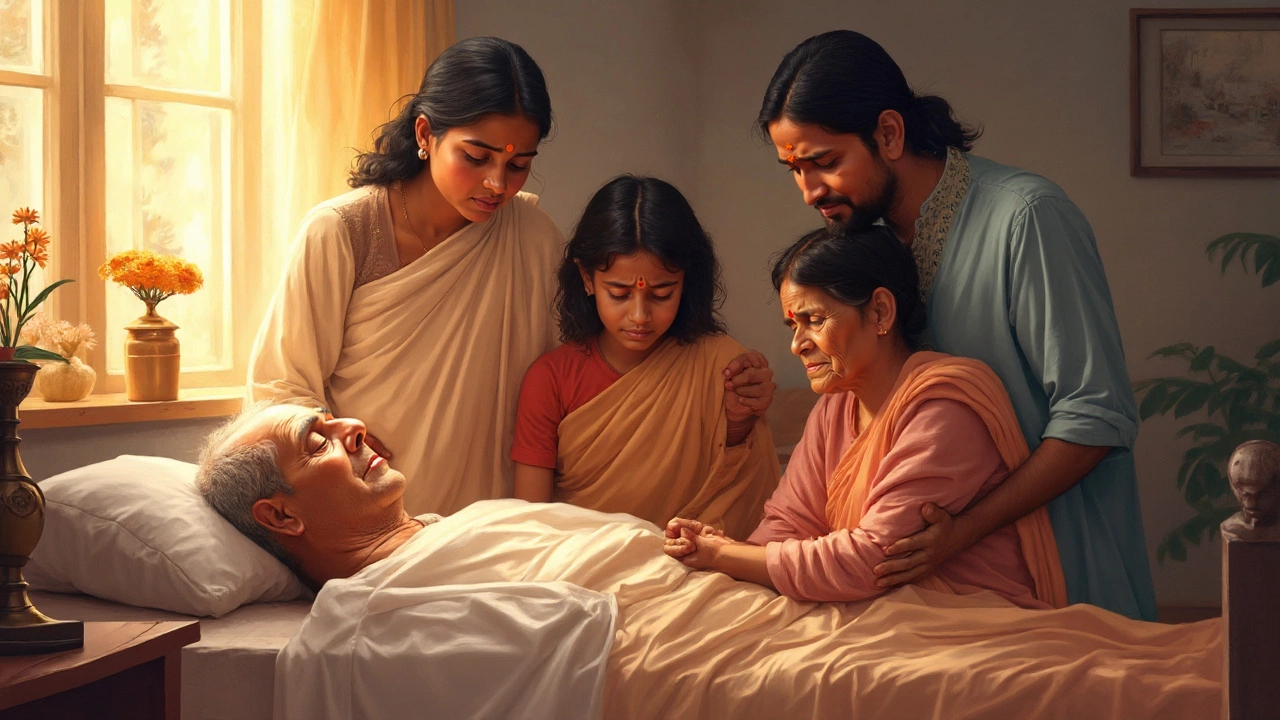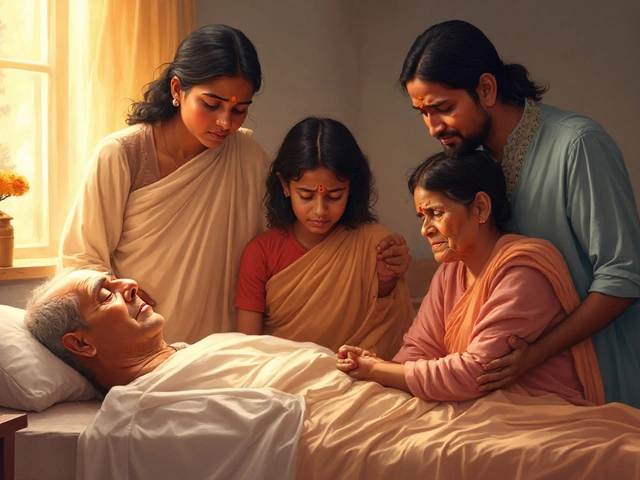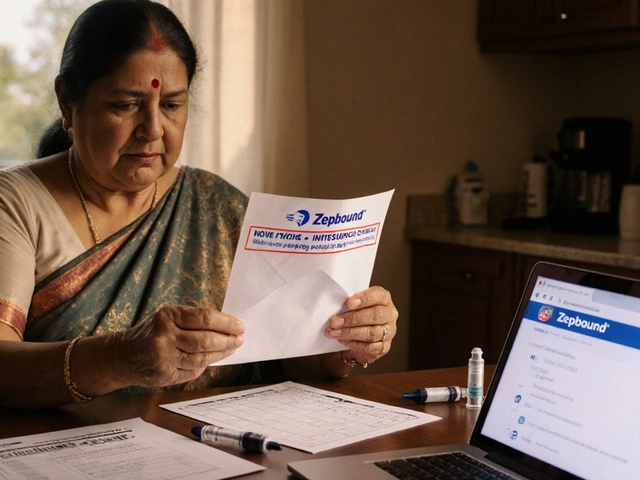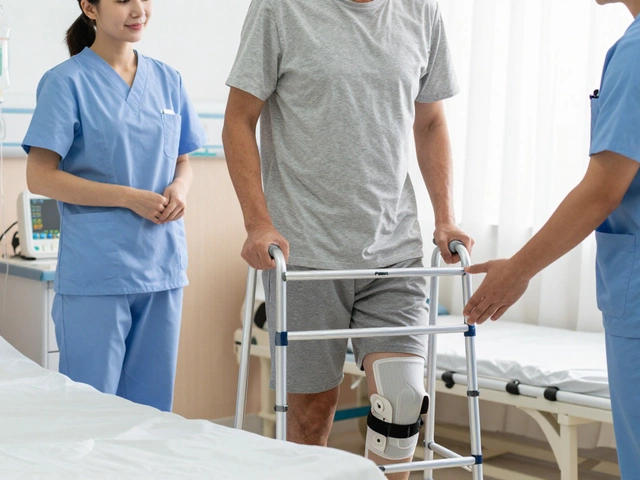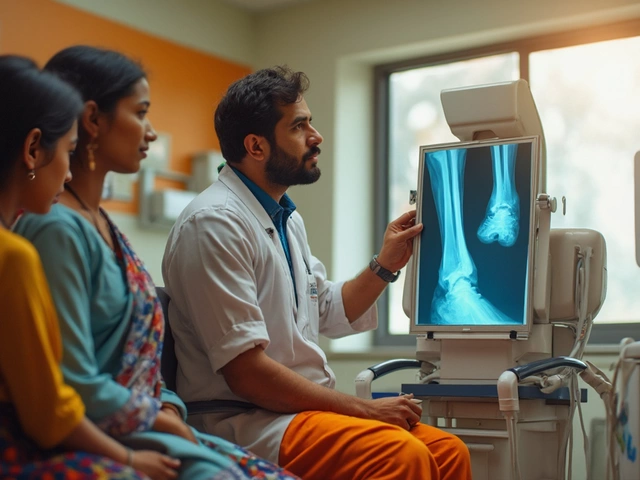Her body stops eating. He drifts between sleep and confusion. There’s a certain look in the eyes—like someone has left the room but forgot to close the door. For anyone walking beside a loved one with advanced cancer, these changes aren’t just hard to watch—they raise urgent questions. What does it mean when someone just stops eating? Is it normal that they’re so drowsy, barely waking up even when the room is noisy? People often imagine cancer’s final act as an explosion of pain or drama. Truth is, the body often opts for more subtle exits—signals you’d miss if you don’t know what to look for.
Physical Changes When Cancer Is Winning
No one wants to think about it, but the body’s final shutdown is remarkably consistent across cultures and cancer types. Appetite flips off like a switch; even favorite foods become unwelcome. You may notice your loved one not caring about water or snacks for days. This isn’t stubbornness but biology: the body is spending energy elsewhere. As organs falter, swallowing gets harder, and food can even become dangerous.
Skin often grows cool and blotchy, especially in the hands and feet. Circulation slows, so fingers and toes look blue or purple. Blood pressure drops, heartbeat becomes weak, breaths get shallow. Sometimes the breathing shifts into odd rhythms—deep sighs followed by long, silent pauses. Medical folks call it Cheyne-Stokes respiration, but you might just think, "They’ve stopped breathing,"—until a sudden gasp snaps everyone to attention.
Sleeping more is expected. A few hours of quiet grows into whole days. When awake, people feel groggy, responding with one-word answers or not at all. The sense of touch remains sharp: the lightest blanket feels heavy, and even a gentle hand squeeze gets noticed. Many folks lose the power or interest to talk, but the desire for connection lingers. Don’t be surprised if your loved one seems to hear you even when they can’t respond. Hearing often sticks around longest.
Bathrooms visits slow as well. Kidneys and bowels barely work. Urine grows dark and less frequent. Swelling in the legs or belly isn’t rare—a sign fluid isn’t moving like it should. When the organs really start winding down, you might spot a distinctive, earthy smell on the breath or skin—a clue the body’s chemistry is changing for good.
Here’s a quick summary in case you want quick reference for these physical signs:
| Physical Sign | Description |
|---|---|
| Loss of Appetite | Refusal of food/drink, even favorites; difficulty swallowing |
| Low Circulation | Cold, blue, or mottled fingers and toes; weak pulse |
| Irregular Breathing | Cheyne-Stokes breathing—pauses and deep sighs |
| Confusion & Sleep | Long, heavy sleep; confusion; minimal speech |
| Urine Changes | Less frequent, darker urine; swelling in limbs |
Understanding these signs doesn’t make things easier, but it helps you focus on comfort rather than panic or force-feeding.
Emotional and Mental Signs: The Quiet Goodbye
Dying doesn’t just happen to the body—there’s a mental drift too. Some people get restless, pulling at sheets or trying to stand. Others grow more withdrawn, lost in memories or silence. This isn’t confusion like you’d get from a sleepless night; it’s deeper, a natural “letting go” as the brain downsizes its workload.
Hallucinations or seeing people who’ve already died are common. Nearly half of all hospice patients report comforting visions in their last days, often seeing parents, friends, or even beloved pets. These moments may look odd from the outside, but usually, they’re peaceful.
A person’s values or personality often start to fade. The always-private grandfather may suddenly welcome every relative for a hug. People say things they never would have, or share confessions and “last wishes” with surprising clarity. Some experts call this “terminal lucidity”—a burst of clear thinking, even as the body fails.
What’s striking is that even people who were anxious about dying months before often make their peace in the last days. The mind seems wired to soften the blow. You see more quiet reflection, less panic or anger. Family members who’ve never talked directly about death before find themselves leaning in, listening, and holding hands—words no longer needed.
Still, confusion can pop up as toxins build in the blood. Simple questions stump people; faces become hard to recognize. If you’re supporting someone, use fewer words, more soothing tones, and gentle touch. Even music or old stories can ease fear. Don’t correct or argue. Meet them where they are, rather than pulling them back to “reality.”
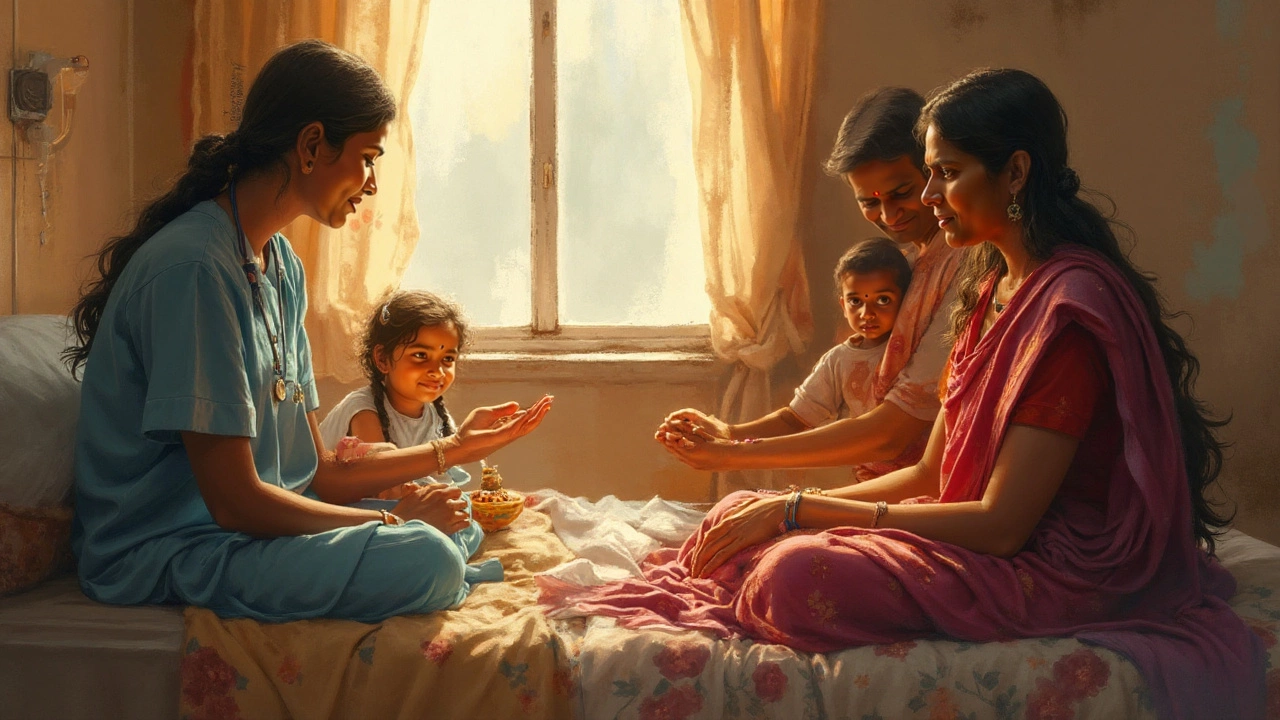
Pain Management and Discomfort: Navigating the Tough Spots
How much pain a person feels at the very end depends a lot on the type of cancer, where it has spread, and their personal pain threshold. It’s a myth that dying of cancer always involves excruciating suffering. With good care, most people slip away with less pain than you’d expect. In a recent UK study, over 60% of cancer hospice patients rated their last days as "comfortable" with proper medication and care. That said, pain flares can happen: bone cancer or advanced tumor spread often hurt the most. If you notice grimaces, frowns, or fidgeting, ask for pain medicine early—it's much easier to keep pain away than to play catch-up.
Not all discomfort is physical. Shortness of breath, called dyspnea, can be scary not just for the patient but for family watching. Doctors often use morphine to make breathing easier, even if there's no pain. Dry mouth, constipation, and bedsores are other enemies—so keep lips moist, turn people gently, and don’t be afraid to ask nurses to change underwear or bedding more often.
Some families worry about heavy pain meds "speeding up" the process. The truth? Comfort-focused treatments do not hasten death. The goal is to dial down suffering, even if it means a little extra sleep. Most experts agree: it's about quality, not squeezing out extra hours at any cost. If your loved one gets extra sleepy or dreamy on medications, it usually means they're finally relaxing.
Sometimes, there’s a sudden burst of energy—a final rally—where someone craves favorite snacks, cracks jokes, or asks to call the grandkids. This surge doesn't mean the person is bouncing back; it’s just part of the natural cycle, seen in up to 30% of people in the last week of life. Make the most of it, but stay realistic.
Why the Body Shuts Down: The Science Behind the Signs
What’s actually happening when cancer takes over? The most common cause: tumors spread to key organs like lungs, liver, or brain, crowding out healthy cells. Others stop eating for weeks, so the body lacks nutrients and starts “breaking down” its own muscles for energy. When kidneys or liver falter, toxins build up fast—causing confusion, swelling, and less urination.
The heart and lungs take the hardest hit. Disease, treatment, or just pure exhaustion means blood doesn’t carry enough oxygen to vital organs. The body “triages”—shutting down fingers, toes, then gut and kidneys, saving the last bursts for the brain and heart. As these shut down, old waste gathers in the blood, which irritates nerves and can cause twitching or seizures. Doctors usually step in to dampen these symptoms with medication.
You’ll also notice temperature changes: some people run fevers, others feel strange chills. Fever this late isn’t from infection, but the brain's thermostat failing. Sweating, clammy skin, and rapid breathing might follow as the body battles to maintain balance with fewer resources.
Time varies for everyone—some slide rapidly; others hold on for days. The key is to focus on comfort, not clock-watching. Hospice teams and palliative care are well-trained to spot the exact moment when someone is truly “actively dying”—when systems give up together. It can look like a slow drift away, usually quiet and soft, rather than anything dramatic.

How Loved Ones Can Respond: Doing the Right Thing
Here’s the hard truth: you can’t stop the body from shutting down with cancer. But you can make it easier. Instead of pushing food or water, focus on small comforts. Swab dry lips. Play favorite music. Sit quietly, even if there’s no conversation. Touch matters—hold a hand, stroke hair, or just sit nearby. These moments linger far longer than the details of medications or feeding tubes.
- Let go of arguments about treatments or "miracle cures" at this point. Focus on minimizing agitation and pain.
- Ask hospice for help—they’re pros at comfort care, whether at home or in a facility.
- Document what matters—stories, wishes, or just special photos. These keep memories alive for years to come.
- If a loved one is restless or hallucinating, respond gently—don’t argue or try to bring them ‘back.’
- Keep visits short and the room calm. Too much activity can be overwhelming.
A surprising tip: People often wait for specific moments (or people). If a family member’s flying in, or a grandchild is on the way, the dying person may “hold on” longer than expected. Once these goodbyes happen, things often move quickly. So, don’t delay visits if you can help it.
Most of all, forgive yourself. No one does this perfectly, and there’s no right script. Advanced cancer doesn’t follow rules, and neither should you when it comes to showing love and finding peace.
If questions keep piling up, ask the care team. There’s no such thing as a silly question—not when someone you love is fading.
